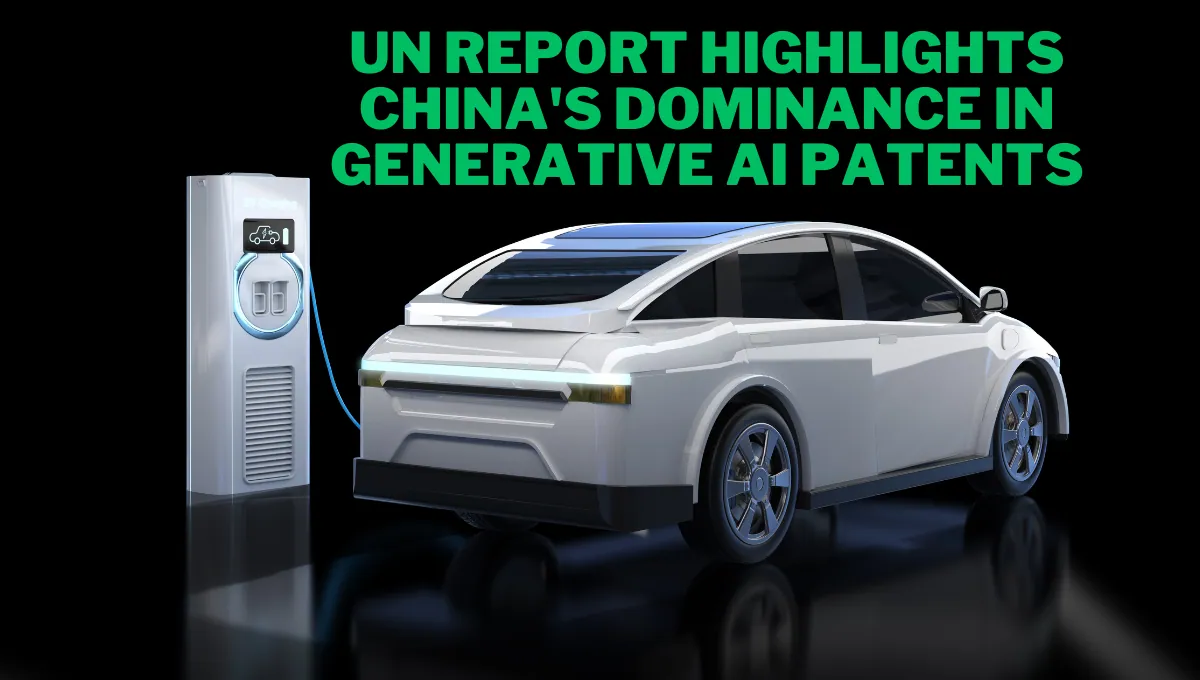China is taking a commanding lead in the realm of generative AI inventions, surpassing other nations by a substantial margin.
According to the latest data from the United Nations, China has filed six times more patents in this field than its nearest competitor, the United States.
This remarkable achievement underscores China’s significant investment and rapid advancements in artificial intelligence technology.
Surge in Generative AI Patent Filings
Generative AI, a technology capable of creating text, images, computer code, and music from existing information, is experiencing explosive growth.
The World Intellectual Property Organization (WIPO), which facilitates the international recognition of patents, reports that over 50,000 patent applications have been filed in this domain over the past decade.
Notably, a quarter of these patents were filed in 2023 alone, highlighting the accelerating pace of innovation in this sector.
“This is a booming area that is growing at increasing speed, and we expect it to expand even further,” remarked Christopher Harrison, WIPO Patent Analytics Manager, during a press briefing.
China’s Leading Role
Between 2014 and 2023, China filed more than 38,000 generative AI patents, vastly outpacing the United States, which filed 6,276 patents in the same period.
This impressive volume of patent applications from China spans a wide array of sectors, including autonomous driving, publishing, and document management.
“Chinese patent applications cover a broad range of areas, reflecting the country’s extensive research and development efforts in generative AI,” said Harrison.
Global Competitors
Following China and the United States, South Korea, Japan, and India ranked third, fourth, and fifth, respectively, in generative AI patent filings. Among these, India is showing the fastest growth rate, indicating its increasing focus on AI technology.
Top companies leading the charge in generative AI include China’s ByteDance, the parent company of TikTok, Chinese e-commerce giant Alibaba Group, and Microsoft, which supports OpenAI, the creator of ChatGPT.
Economic and Industrial Impact
Generative AI, particularly chatbots capable of mimicking human conversation, is already being utilized by retailers and other businesses to enhance customer service. However, the potential applications of generative AI extend far beyond this initial use case.
According to WIPO’s Harrison, generative AI could revolutionize various economic sectors, including science, publishing, transportation, and security.
“The patent data suggests this is an area that is going to have a profound impact across many different industrial sectors going forward,” Harrison noted, emphasizing the scientific sector.
He highlighted the potential for GenAI-created molecules to expedite drug development, showcasing just one of the transformative applications of this technology.
Future Trends and Predictions
WIPO anticipates another surge in generative AI patent filings soon. The organization plans to release an updated report to capture these trends, potentially utilizing generative AI itself to analyze and present the data.
“The continuous advancements in generative AI are poised to reshape numerous industries, driving innovation and economic growth,” Harrison concluded.
Conclusion
China’s dominance in generative AI patent filings reflects its strategic emphasis on AI research and development.
As generative AI technology continues to evolve and expand its influence across various sectors, the global landscape of innovation and industrial applications is set to transform dramatically.
With other nations like the United States, South Korea, Japan, and India also making significant strides, the future of generative AI promises to be dynamic and highly competitive.
In summary, the UN report highlights not only China’s leadership but also the broader global trend towards rapid advancements in generative AI, marking an exciting era of technological progress and innovation.
